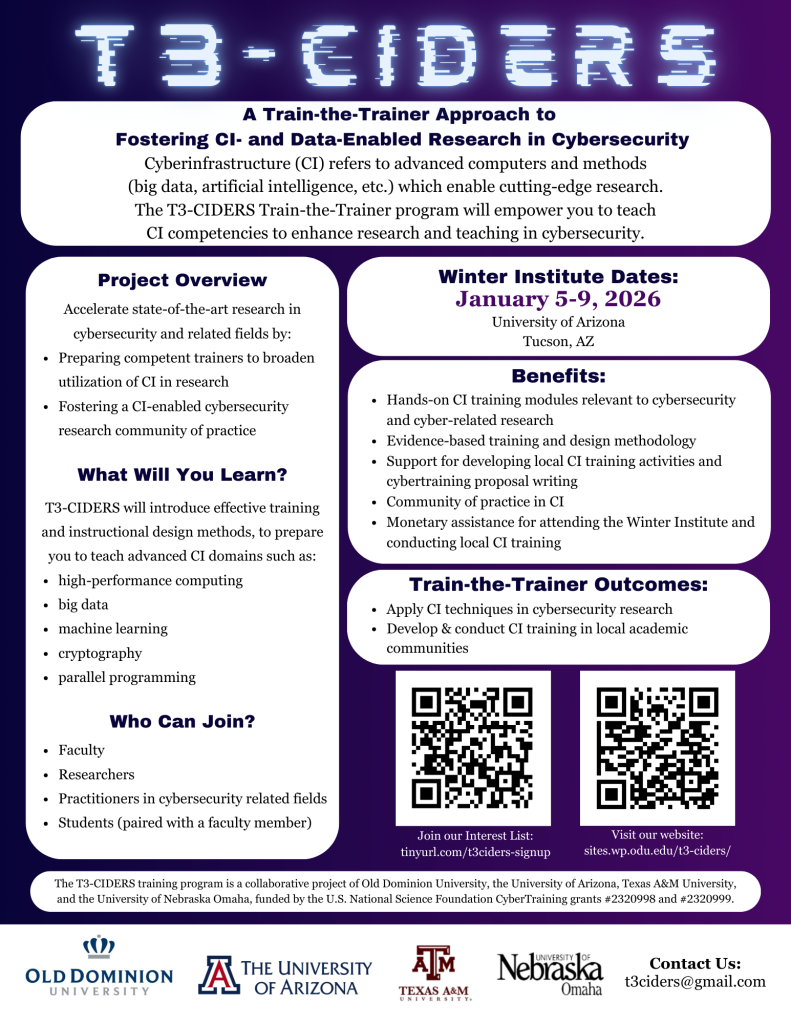Welcome to T3-CIDERS!
T3-CIDERS, short for “A Train-The-Trainer Approach to Fostering CI– and Data-Enabled Research in CyberSecurity”, is a train-the-trainer program for advanced cyberinfrastructure (CI) skills that is designed to be synergistic with research, teaching, and learning activities in cybersecurity and cyber-related disciplines. To learn more about the program, please visit the Overview page.
T3-CIDERS invites faculty and researchers from qualified higher education institutions to participate as “future trainers” in our program, who will become part of a new community-of-practice for cybersecurity research leveraging advanced CI techniques and platforms.
Download the flyer as a PDF file here.
>>>> Join our Interest List! <<<<
Background of T3-CIDERS
Today, the significant impact of cyber-enabled technologies is easy to see, but cyberattacks are also more prevalent now than ever, and their ever-evolving sophistication has only led to greater and more widespread consequences. To mitigate these attacks, cybersecurity researchers, engineers, and practitioners heavily rely on advanced cyberinfrastructure (CI) techniques such as:
- Artificial intelligence
- Big data
- Parallel programming
- High-performance computing
However, traditional cybersecurity programs often lack even basic training in these advanced CI techniques, hindering many cybersecurity students and postdoctoral researchers from conducting cutting-edge cybersecurity research and participating in advanced industrial cybersecurity projects.
To address these concerns, T3-CIDERS introduces future trainers to effective training and instructional design methods to prepare them to train others in advanced CI techniques. Future trainers will gain access to hands-on training modules in advanced CI relevant to cybersecurity and cyber-related research and be exposed to an evidence-based training and design methodology. Plus, they will receive support in preparing and carrying out their own training activities within their local academic communities. These activities will help broaden participation in cybersecurity research by diverse academic constituents, including underrepresented segments of the population, small colleges, and two-year community colleges.

